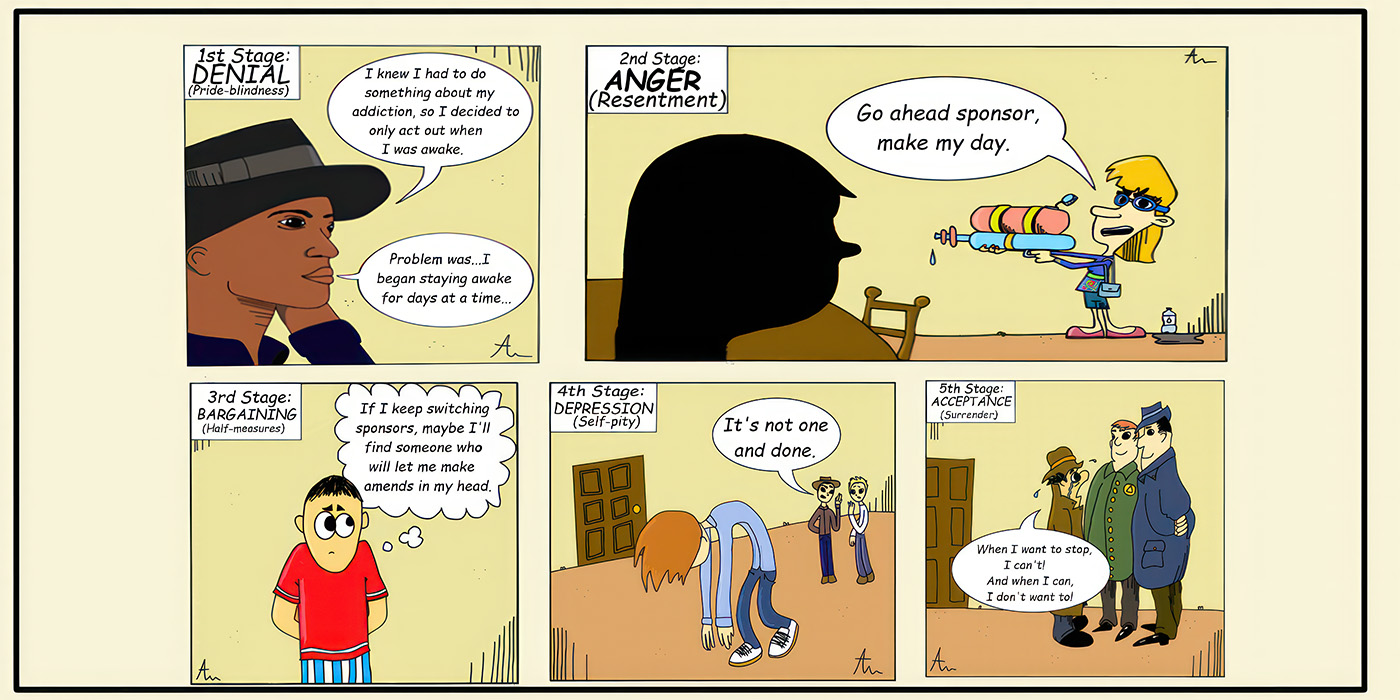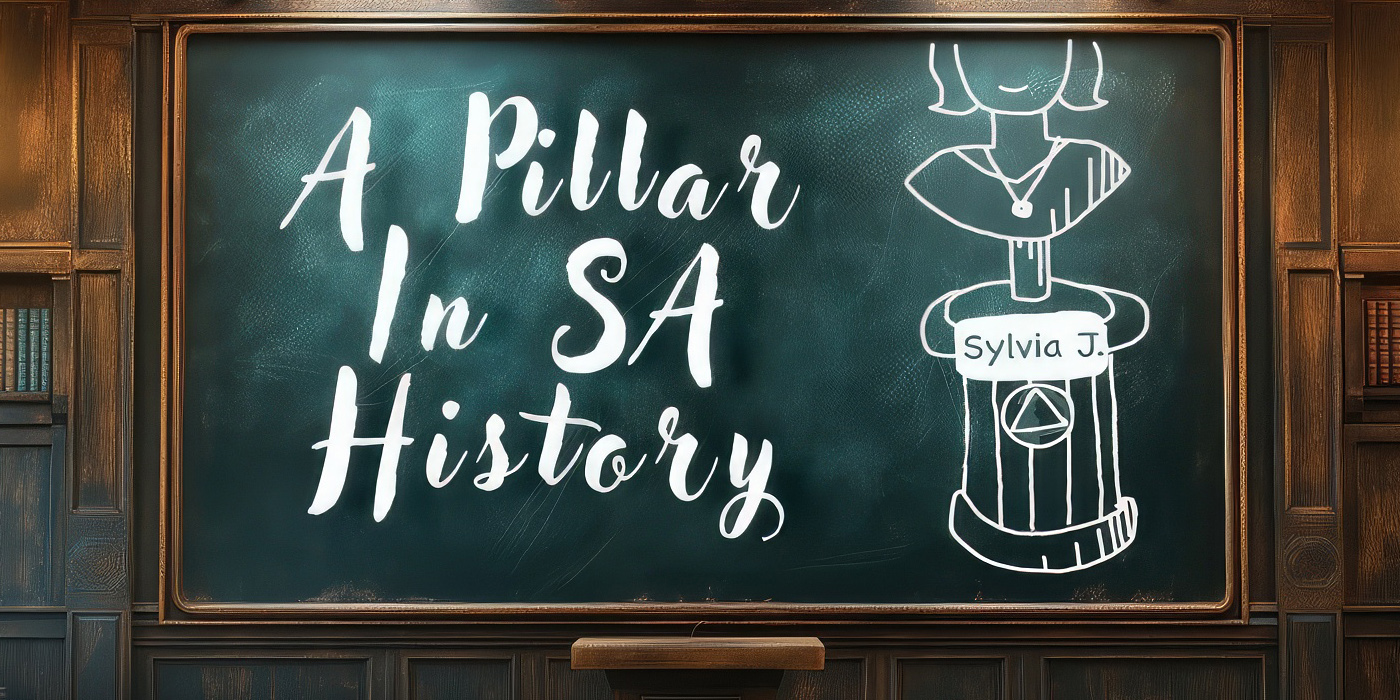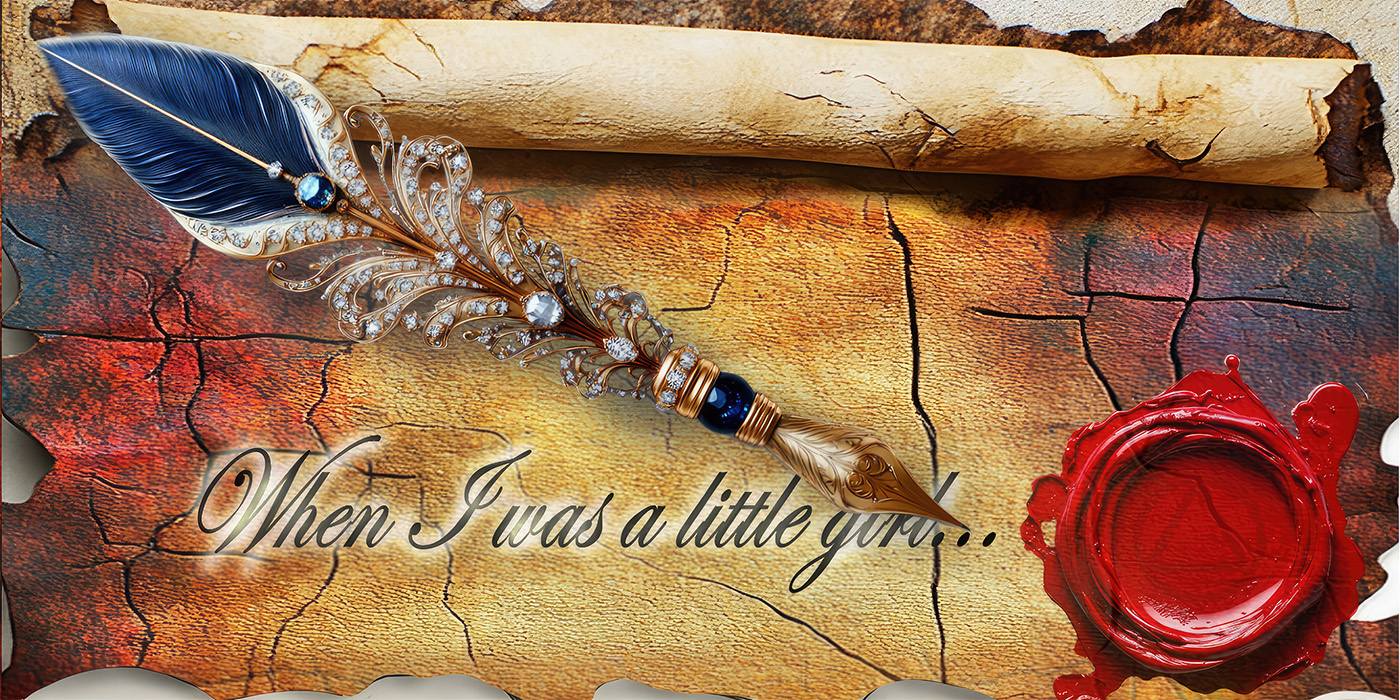I’m Alan, a grateful recovering sexaholic. I’ve been sexually sober by God’s grace since May 10, 2004. I believe that I was born with this disease. In the past I was only able to give in to it, but today, because of SA, I can choose sobriety.
I began acting out when I was six, after I found an adult magazine in a barbershop. Pornography and masturbation followed me through my teenage years into adulthood. I would buy magazines and videos, then destroy them after I used them, promising myself “never again.” Yet the next morning I was searching for more.
When I was around 35, I discovered dial-up porn on the Internet. How frustrating that was, waiting for the images to download! Yet the wait did not stop me. I spent hours on the computer.
When I got married, I promised to be faithful to my wife and I meant it. But lust was stronger than my resolve. Masturbation was my nightly sleeping pill. Over the course of our 20-year marriage, I had sex with prostitutes many times. Sometimes, after I had sex with my wife and she was asleep, I would go cruising to act out with a prostitute. Yet nothing was ever enough. I was addicted to more. Dr. Bob described perfectly what my life was like before I came into recovery: “My whole life seemed to be centered around doing what I wanted to do, without regard for the rights, wishes, or privileges of anyone else; a state of mind which became more and more predominant as the years passed” (AA 172).
I always knew that what I was doing was wrong. As a religious Jew, I prayed every day for 20 years, asking God to help me stop what I was doing. Every Sabbath, every weekday, every year, every opportunity I had, I would pray. I would wake up Friday nights at 1:30 a.m. and recite the entire book of Psalms. I would fast. I would cry. I would beg God to remove this thing. I didn’t know what it was, but I wanted it removed. No more prostitutes and no more pornography!
I was so disgusted with myself that I was actually able to stop going to prostitutes two years before I came into SA. Yet I still could not stop the pornography and masturbation. What was wrong with me?
Before I came to SA, I held a prestigious position in New York. I got caught looking at porn at work when I was 40. The head rabbi confronted me. I denied it. He said, “No one will hear about this from my lips, but you need to create a reason why you can’t come back to work next week.” He knew that I had connections with other rabbis, and he told me to pursue my career elsewhere.
I clearly remember that day. Today I know that this was the best thing that ever happened to me, but at the time, I thought it was the worst day of my life. In my tight-knit religious community, my family would have been destroyed if the word had gotten out. I went home and acted out. What else could I do? That was the only way I knew to cope. I felt lost. I could not sleep, I could not say my morning prayers. I had thoughts of suicide but no specific plans. The jig was up.
The next day, a Friday, I called a couple of colleagues in other cities. One of them called back just before the start of Sabbath that evening. He said, “You’re coming to Toronto next week. I got you a position here.” I knew he was working in Toronto, which happens to be the place of my birth. I had many questions. He said, “Just come next week and we’re good to go.” I got fired on a Thursday and I would begin work the following Monday, so I did not miss even a day of work. This position lasted for two years—proof to me today that God never left me.
I was sharing an apartment with my colleague, and I immediately began scanning my environment for places to act out. In order to feel comfortable, I needed to know where I could go should the need arise. After what had just happened, you might think that I would realize I had made a huge mistake and would make changes so that this would not happen again. But I’m not a normal person. I’m a lust addict. And I was not ready to stop.
I started with the phone book (a familiar place in my acting out days) in my quest to act out. That first day, I saw “Sexaholics Anonymous” in the Toronto phone book. I thought this might be a great place to act out! So I dialed the number. I did not hear the whole message, but I clearly heard the word “sobriety.” This word triggered a memory for me from five years earlier.
Five years before, as I was watching a television talk show, I saw a doctor who said he was a sexaholic. He had two years of sobriety at the time. He brought a panel of people with him on the show, and they all spoke about their sexual addictions—including a priest who had lost his position. This was my first awareness that I was not alone with my problem, and that it was a disease! I felt like a newcomer who walks into a meeting for the first time. I was shocked!
I tried to find this doctor using the Internet (before modern Internet search engines). I tried to find previous episodes of the talk show so I could get in touch with him. I had tried to find him for five years without any luck, so when I heard the word “sobriety” on the SA hotline, I thought, “Maybe this is what I’ve been looking for all this time!”
No one called me back right away, so I called again the next day and left another message. I said, “I’m a rabbi and I got caught. I need help.” A Jewish man I knew from childhood in Toronto called me back. He asked, “Will it help you knowing that I’m a religious Jew in SA?” I said that it was really helpful! I agreed to meet him and we spoke for a few minutes. He said, “There’s a meeting next Monday.”
The meeting was held in a church. That was a bit of a problem because religious Jews are forbidden to enter a Christian church. (Of course if I had wanted to go there to act out, I would not request my rabbi’s permission!) I called my rabbi on Sunday and said, “I need to go to a church for a meeting.” He asked, “Do you have to go?” I said, “I have to go.” He said, “Then go.”
I started attending meetings that Monday in October 2001. I was scared, but I kept going every week. I went directly from work, without going home first. I would hide my White Book in my bag so my coworkers wouldn’t see it. I was petrified of being found out. My first sponsor would say “Alan, the last thing your coworkers are thinking is that you are on your way to a meeting of sexaholics.” But I was sure that’s what everybody was thinking.
When I had struggles I would call my sponsor and ask what to do. He would say, “There are three things you need to do to stay sober: call your sponsor every day and listen to his advice, go to meetings every week and share at those meetings, and pray every day for God’s will for you.”
I kept two of those instructions really well. I called my sponsor every day and I followed his advice. I was given a specific time to call him: 7:15 a.m. Some days I called him right back after I hung up from that call, because I was afraid I would act out. I went to SA meetings and I shared. I went with my sponsor to open AA meetings. I worked the Steps with my sponsor, and I got sober. But I wasn’t recovering, and I wasn’t humble—at all.
I had a big problem. My sponsor’s third suggestion I could not follow: I could not pray for God’s will for me. I hated God. I was angry with Him for not answering my prayers before. After a year and a half in SA, I told an old-timer, “I’m really angry. I prayed for 20 years to stop acting out. Is God deaf?” He replied, “God answered your prayers. He brought you to SA, just not in your time.” But I was not ready hear this.
I met Roy K. at my first International Convention, in Portland in 2002. He told me, “Keep seeking God and you will find Him.” But that wasn’t good enough for me at the time. I came into SA with a Biblical God who I felt did not work for me, and I did not want to have anything to do with Him. He had not helped me in the past, so why would he help me now? I could not get past this. Besides, I was sober, and I thought I was cured.
This attitude nearly killed me. After two years of sobriety, I stopped going to meetings, stopped making phone calls, and I relapsed. I went through eight long and lonely months of hell. My wife threw me out of the house. I went into rehab for sexual addiction. After that, she took me back. But I could not get sober. I pray I will never forget the pain I went through in those eight months.
When I got sick and tired of being sick and tired, I went to a friend in the program and said, “I can’t get sober. I need help.” He said, “Why don’t you call someone every day and tell him that you’re a sexaholic?” I said, “Okay, can you be that person for a few months?” And he became my new sponsor. And that’s what I’ve been doing every day for the past eight years. That’s how I practice Step One today—I call someone every day and say, “I’m Alan, I’m a sexaholic.”
The real turning point for me, however, was my Step Two experience: the belief that a power greater than myself can restore me to sanity. No matter what my experience had been in the past, today I know that with His help, I can change. But first I needed to find a Higher Power who worked for me.
Early on, when I struggled with developing a relationship with a Higher Power, I went to Roy for help. He said, “Alan, you need to give up the rituals, they are blocking you from God.” I did not understand this. How could I? These were the things I had been taught all my life. They were a fundamental part of my religious practice. But I was desperate. I finally took Roy’s advice to seek a God of my own understanding.
I had to completely let go of my old life. I made decisions that went against the grain of my religious community, my beliefs, and my family. I would love to say that this was easy for me, but it was not. How could I let go of what I believed to be true? Yet I had been told my rituals were blocking me from God.
I don’t know why—and this may not be true for anyone else and it is certainly not a requirement for sobriety—but for me and my own recovery, I had to completely let go of my old ideas about God. I had to unlearn everything and start all over with God. One day I told my rabbi, “I can’t do this anymore,” and I gave up the rabbinate. I stopped all my religious practices.
During this time I felt isolated and alone, even in our fellowship. I felt that no one could relate to my struggles. I lost sponsees who were religious when they learned I was no longer a practicing Jew. I isolated from the world. But I blindly stuck close to the program. I went to lots of meetings, called my sponsor daily, and took his suggestions. And I started to get healthy. I must have been very sick because it took me a very long time.
Today I believe in a God I can trust and who has my ultimate good at heart. Since those early days, I’ve grown in my relationship with Him. The God of my experience does not always do what I want, or what I think I need, or what I’ve requested. But I believe today that everything God does in my life is for my benefit. I never thought it would be possible to feel such an intimacy with God, or to feel love and acceptance from Him.
I still struggle with lust at times, but that’s because I’m a sexaholic. God doesn’t reject me. I don’t have to feel shame. If I struggle with lust thoughts or if I look or flirt, I can immediately call someone and share what I’m going through, and move on. When I make that call, the rest of the day goes the way it is supposed to go—because I have a loving God who has all power and who can change me, when I surrender my will to Him.
Today, I’ve learned to love and accept myself. I have an intimate relationship with my wife that I thought was possible only in the movies. Sex is unimportant. We have something much greater today: intimacy. I never knew there was a difference. I have a love for my wife so dear I would do anything for her, except one thing: I cannot stay sober for her. I must stay sober for me.
My disease is stronger than my marriage. It is stronger than my intimacy with my wife. All of the good feelings that I have are not enough to keep me sober for even one day. But to pick up that phone, call another sexaholic, and say that I’m a sexaholic seems to be powerful enough to keep me sober. I don’t know why. I don’t get it. I only know this is what works for me today.
Today, the love that I feel from God permeates my being. I’ve started to love my children. I even started to love my parents, whom I previously hated and blamed. I made amends to them recently. I called my father and said, “Dad, I need to make amends for being disrespectful, and for avoiding you at times. I’m not proud of it.” He replied, “Not at all son, I have the greatest love and respect for you.” He didn’t change. He’s 83 years old. He always had the greatest love and respect for me. But I’m a sexaholic, and I don’t always perceive things correctly.
I would love to say that I’m “cured,” that I’m good to go and I’ll see you in 10 years. But this good life and my sobriety today won’t keep me sober tomorrow. Today I can stay sober because I took an action. Tomorrow I have to take another action. But that’s okay, I’m not worried about tomorrow, because for today I’m okay.
Through the fellowship of SA, God has changed every aspect of my life. Instead of focusing only on what I want, today I am able to help others. I am amazed that, with my background and my struggles, I can help anyone. Yet I have had the opportunity to serve in many ways: I lead meetings, sponsor others (even religious Jews!), and have been involved in service beyond our local region (including chairing an International Convention). These are truly some of the greatest gifts of recovery. By God’s grace, my life has been transformed from a self-centered, angry human being to a loving, happy child of God.
Bill W. describes so beautifully how I feel about my life today: “Service, gladly rendered, obligations squarely met, troubles well accepted or solved with God’s help, the knowledge that at home or in the world outside we are partners in a common effort, the well-understood fact that in God’s sight, all human beings are important, the proof that love freely given surely brings a full return, the certainty that we are no longer isolated and alone in self-constructed prisons, the surety that we need no longer be square pegs in round holes but can fit and belong in God’s scheme of things—these are the permanent and legitimate satisfactions of right living for which no amount of pomp and circumstance, no heap of material possessions, could possibly be substitutes” (12&12 124-125).
I am grateful to God and to all of you in the fellowship for my sobriety today.
God bless,
Alan






